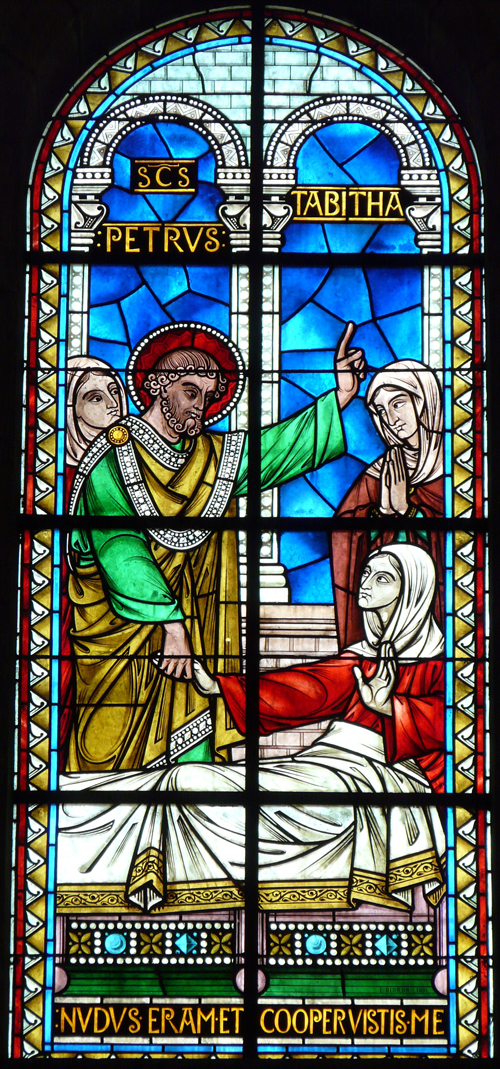
"I was naked and you clothed me"
Edouard Didron, 1891
My dear friends,
The tale of Dorcas, or Tabitha (the name means "gazelle" in both Greek and Hebrew, respectively), provides us with profound lessons on the power of compassion, selfless action, and the deep interconnectedness of all beings.
whose name was Tabitha, which in Greek is Dorcas.
She was devoted to good works and acts of charity.
- Acts 9:36
Dorcas was not renowned for her wealth, status, or worldly achievements. Instead, she was known for "always doing good and helping the poor." In the traditions of both Christianity and Buddhism, selfless compassion is held in high esteem. This is a reminder that our worth is not determined by our material gains, but by the love and kindness we share with others. The righteous remember us most favorably not for what we accumulate, but for what we give away.
When they had washed her,
they laid her in a room upstairs.
Since Lydda was near Joppa,
the disciples, who heard that Peter was there,
sent two men to him with the request,
"Please come to us without delay."
So Peter got up and went with them;
and when he arrived,
they took him to the room upstairs.
All the widows stood beside him,
weeping and showing tunics
and other clothing that Dorcas had made
while she was with them.
- Acts 9:37-39
The mourning of Dorcas showcases the intricate web of interconnectedness. Her acts of kindness, symbolized by the robes and clothes she made, extended to the widows, the community, and eventually, the entire town of Joppa. We are all interconnected: each helpful or harmful act propagates through a vast web of cause and effect.
He turned to the body and said, "Tabitha, get up."
Then she opened her eyes, and seeing Peter, she sat up.
He gave her his hand and helped her up.
Then calling the saints and widows, he showed her to be alive.
This became known throughout Joppa, and many believed in the Lord.
- Acts 9:40-42
Peter’s prayer and the miraculous return of Dorcas to life highlight the immense potential within faith and spiritual practice. Both Christianity and Buddhism stress the importance of unwavering faith. When we truly believe and are connected to a higher purpose, we can channel energies and strengths that transcend our usual capacities.
The miracle did not solely serve the purpose of reviving Dorcas but led to a larger consequence – many came to believe in the Lord. Miracles, in every spiritual tradition, are not just events of wonder; they are indicators pointing towards a higher truth and purpose.
Dorcas' resurrection, while a profound miracle, also invites us to reflect on the miracle of life itself. Each day, each breath is a gift. In the Lam Rim tradition of Tibetan Buddhism, the contemplation of the preciousness of human birth is the first step in spiritual growth. Every moment is an opportunity for transformation and enlightenment.
My dear friends, let us embrace the teachings from the life of Dorcas. Let us be inspired to live selflessly, understand our interconnectedness, deepen our faith, and recognize the daily miracles around us.